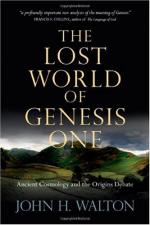|
This section contains 1,537 words (approx. 6 pages at 300 words per page) |

|
Overview
Attempts to make sense of the universe have been made by human societies since prehistoric times. These efforts, taken as an effort to understand the universe as a whole, are called cosmologies. While the earliest known cosmologies explained phenomena in terms of specific mythological accounts, Greek philosophers in the sixth century B.C. first sought to find naturalistic explanations for the motions of the stars and planets. By the time of Ptolemy in the second century A.D., a cosmology and a mathematically complex model of the universe had been constructed that would remain essentially unchallenged until the sixteenth century.
Background
Evidence of Babylonian and Egyptian achievements in mathematics, astronomy, and astrology date back as far as 3000 B.C. The Babylonians eventually achieved very accurate knowledge of the motions of the Sun, Moon, and planets. Their astronomical knowledge made...
|
This section contains 1,537 words (approx. 6 pages at 300 words per page) |

|


